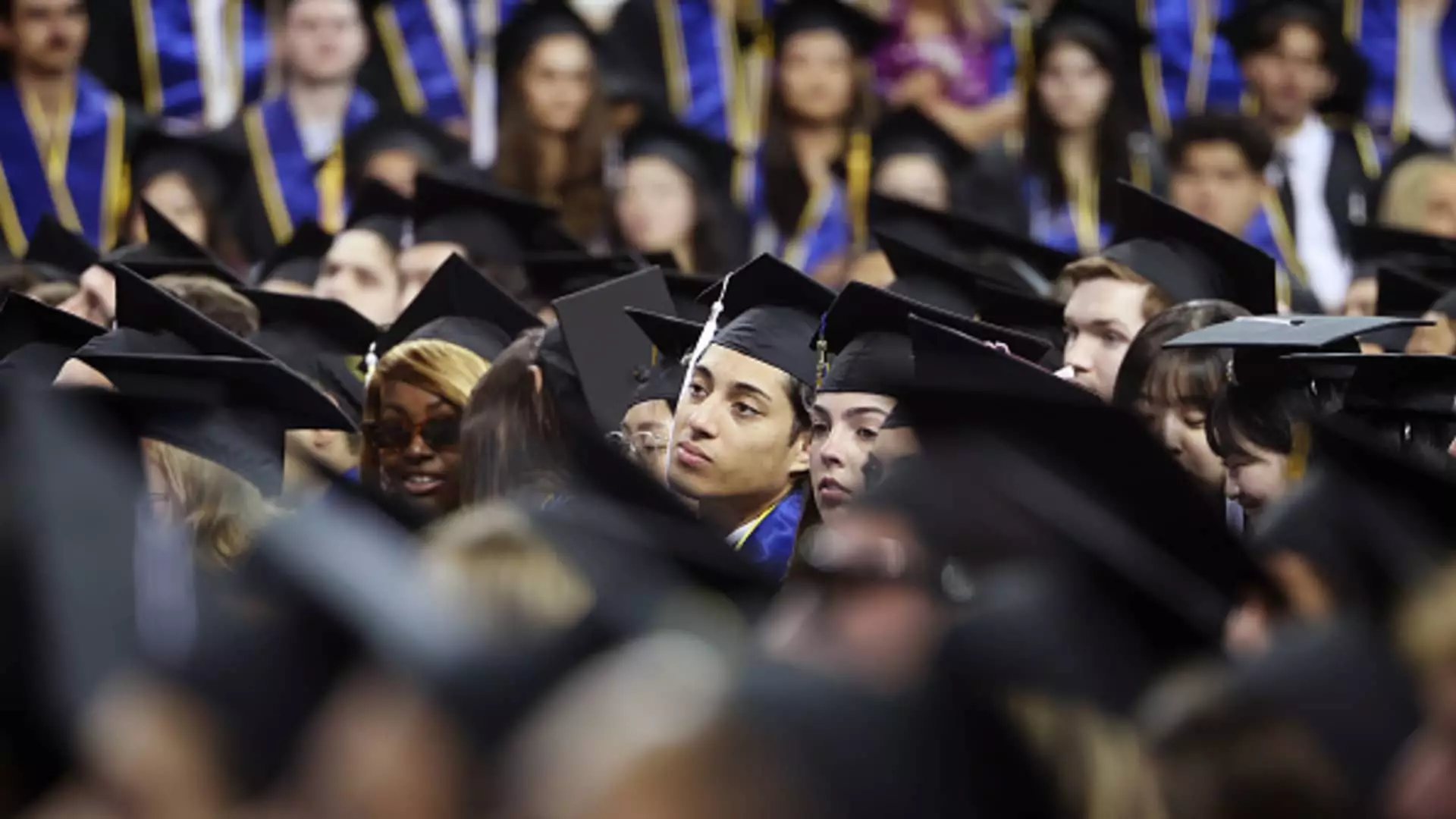As we traverse the landscape of higher education, one evident truth emerges: the once solid belief in a college degree as a golden ticket to prosperity is fraying at the edges. A recent study by the Federal Reserve Bank of New York, among others, paints a stark picture of the college experience and its associated costs. Despite the enduring narrative that a college education enhances economic prospects, it is crucial to critically assess which students reap genuine benefits and which are left holding a depreciating asset.
While it is undeniable that jobs requiring specific technical skills—often borne from traditional education paths, especially in fields like engineering and computer science—command higher salaries, it is essential to examine how these fields are not as accessible to all. The disparity in educational success based on major and socio-economic background illuminates an uneven playing field. Majors that don’t offer direct paths to high-demand fields may leave graduates entering a competitive job market that often offers minimal financial return on their educational investment.
The Burden of Rising Costs
The surge in college tuition over the last few decades has created an educational landscape where many prospective students and their families grapple with unprecedented financial strain. With average tuition rates climbing at an astonishing rate—5.6% annually since 1983—students are becoming increasingly aware that the pursuit of a degree might come at the expense of their financial future. Families are now contributing 48% of college costs, a stark increase from a decade ago, effectively pushing the burden onto those who are often already struggling to make ends meet.
This financial pressure augments the student loan crisis, escalating outstanding debt figures to a jaw-dropping $1.6 trillion. Such staggering numbers beg the question: is the financial return worth the risk? As a center-wing liberal, I argue that we must confront the reality that college has transformed into a business, often prioritizing profit over genuine academic and personal development. The cost versus benefit ratio is increasingly tilted against the average student, particularly those from lower socio-economic layers.
A Shift in Student Sentiment
Conversations around the value of a degree are evolving rapidly. Increasingly, high school graduates are rejecting traditional paths that were once seen as prerequisites for success. With the exorbitant costs of tuition and crippling student debt weighing heavily on their minds, students are beginning to favor shorter, more cost-effective programs that promise swift employment opportunities. In fact, the trend has been confirmed by the National Student Clearinghouse Research Center, which observed a marked decline in both bachelor’s and associate degree enrollments for the third consecutive year in 2023-24.
This shift indicates a growing belief that education should be pragmatic and lead directly to employability, reflecting broader societal changes and the realities of an evolving job market. Today’s students are unwilling to plunge into an uncertain financial future for a degree that may not offer a substantial return. They seek credentials that translate into jobs rather than degrees that incite lifelong debt.
Time to Reevaluate Value
As families continue to shoulder a more significant portion of college expenses, and the cumbersome student loan debt mounts, a reevaluation of higher education’s true value is paramount. Higher education needs a radical transformation from its current incantation into an institution that readily accepts responsibility for its role in shaping the financial futures of its students.
Colleges must look beyond the confines of their ivory towers and engage with the communities they serve, reconfiguring programs that cater not just to lucrative industries but also include a broad range of skills and training for work that enhances civil society. Professional education should not be an elitist affair but rather a collective endeavor aimed at fostering economic stability and personal growth for all.
The narrative surrounding college education requires a paradigm shift that acknowledges the existing inequities and emphasizes the need for an adaptive educational infrastructure. If higher education continues on its current trajectory of inflated costs and diminished returns, it risks losing its foundational role in shaping tomorrow’s leaders and innovators. Encouraging students to explore diverse pathways will ultimately enrich society and make education a constructive rather than a burdensome venture.

